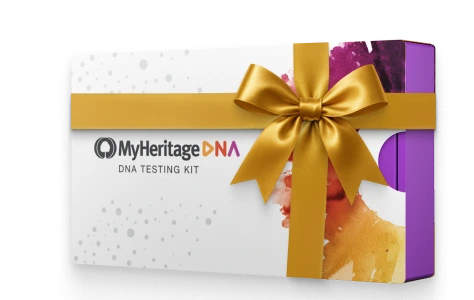
Baptism is a Christian practice that adherents participate in to become church members and show their decision to follow the teachings of Jesus Christ. The baptism ceremony uses water, either total immersion or a sprinkling on the head. This ceremony can be held at a church or in a body of water like a river.
Christening is the act of giving a baby a name. It is a practice in some Christian denominations. This sacrament includes baptism. If a baby is christened, they are also baptized. There will not be two records for this one event.
Not all Christian denominations baptize. The Salvation Army and Quakers (Society of Friends) do not conduct baptisms. When researching an ancestor’s church records, determine what sacraments or ordinances are part of that faith community and which result in records.
Baptism RecordsBaptism Records
Baptism and christening records can be an alternative to birth records in cases where government-issued birth records (vital records or civil registration) do not exist. Baptism records can provide information about a child, their parents, and their birth date. Christening or baptism records can be original records created shortly after a child's birth. When a record is created closer to the time of an event, it may be more accurate than one created decades or more later.
Baptism records can differ according to the church, location, and time period you are researching. These records may contain the following information:
- Name (this may include a civic and baptismal name)
- Date of baptism
- Birth date
- Parent's name
- Sponsor, godparent, or witness names
- Clergy name
- Church name and location
Information found in records can depend on the religious tradition and the age at which the faith community baptizes. Some churches baptize babies or children. Others practice adult baptism, also referred to as "believers' baptism." The Baptist church practices believers' baptism and records only a name, baptism date, and where the event occurred.
When using a baptism or christening record, carefully analyze the record, including all listed names. A sponsor, witness, or godparent may be a relative. That name might also be a clue to a mother's maiden name if that is not listed. Also, take note of any dates listed on the record. A record that lists a date later than the actual date of baptism might be a transcription or copy, not the original record.
It is possible to find more than one baptism for a person. If your ancestor belonged to more than one faith tradition, they might have been baptized more than once. Some Christian denominations do not accept other denomination's baptisms as valid. If your ancestor belongs to a faith community that excommunicates members, finding a later record if they were welcomed back and rebaptized is also possible.
To better understand what records may be available, read information about that church and its practices. The church's website or a book on researching specific church records may help. To find the church's website conduct a search engine search. Also, consider learning more about their historical practices by consulting the website of a historical society or archive for that church.
Baptism records availabilityBaptism records availability
When seeking out baptism or christening records, there are several places to look. Baptism and christening records may be stored at the church where the event occurred. They may also have an affiliated archive, library, or historical society with records. Remember that a church may not allow you to conduct on-site research. You will need to contact the church, ask about record availability, and then you may need to pay a fee for staff to search and make copies for you. The church is concerned with serving the needs of its living members, so you may need to be patient when waiting to receive requested records. Also, privacy issues may be a factor, and depending on the date could limit what records are available.
Online sources to find christening and baptismal records include genealogy websites such as MyHeritage. These websites have a database of church records that are digitized, indexed, or transcribed.
Online digitized book websites may include an index of church records, including christening and baptisms. Possible digitized book websites include Google Books, Internet Archive, the FamilySearch Digital Library, and Hathi Trust. If you can find mention of a baptism or christening in an index, seek out the original record. Indexes do not include all information found in a record, and errors could occur. Indexes are meant to find aids and should not be the only source consulted.
Remember that databases may be titled 'church records' instead of the more specific 'baptisms'. Any database of church records for the church, location, and time period you are researching should be consulted.
Baptism or christening records may also be a home source. Always check for possible certificate copies held by a descendant.
See alsoSee also
Explore more about Baptism recordsExplore more about Baptism records
- Church Records on MyHeritage
- American Baptist Historical Society
- Christening at Church of England
- Membership Records Baptism and Confirmation Information in Early Records Research Guide at The Church of Jesus Christ of Latter-Day Saints
- Archives at Evangelical Lutheran Church in America
- About Quakers at Friends General Conference
- Genealogy Research Service at Presbyterian Historical Society
- Church Records at The Ancestor Hunt
- Cyndi’s List (search by the religion or place where your ancestor lived)


